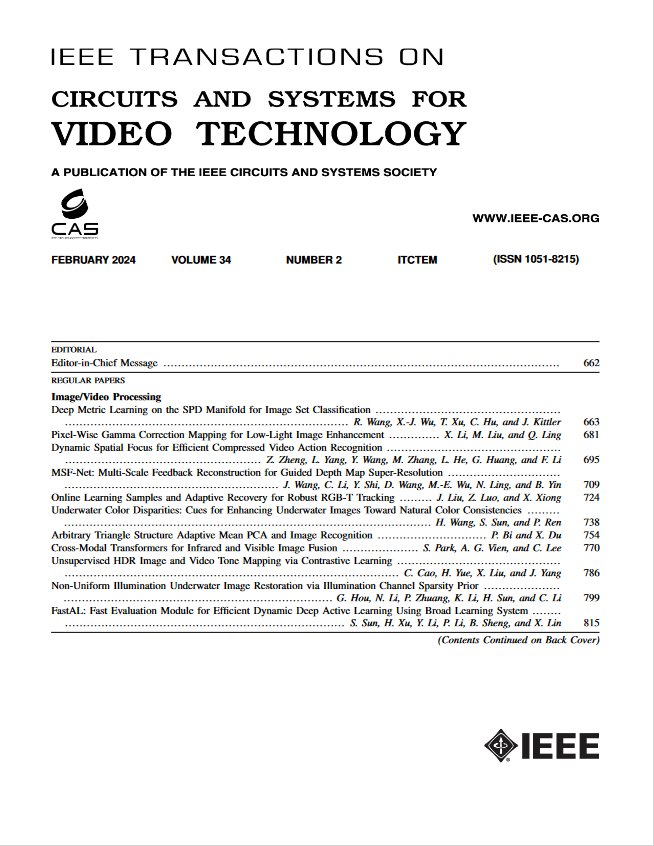具有任务自适应选择的元学习
IF 11.1
1区 工程技术
Q1 ENGINEERING, ELECTRICAL & ELECTRONIC
IEEE Transactions on Circuits and Systems for Video Technology
Pub Date : 2025-04-03
DOI:10.1109/TCSVT.2025.3557706
引用次数: 0
摘要
基于梯度的元学习算法从任务池中获取元学习参数。从得到的元学习参数出发,只需少量的梯度下降更新,就可以快速微调,达到更好的效果。共享初始化参数的两层元学习方法在求解小样本学习域方面取得了较好的效果。然而,在内层多个相似任务的训练中,任务的难度和收益一直被忽视,导致任务之间的冲突,最终使模型陷入意想不到的境地。因此,本文提出了一种任务自适应选择元学习算法TSML。具体来说,我们构建了一个任务选择训练器来评估任务的难度并计算任务的未来收益。基于难度和收益为每个任务设计更优的训练策略,改变当前多任务环境下的妥协,平衡任务对元学习参数的影响。此外,对传统元学习的外部元参数更新方法进行了调整,使元参数获得了更好的位置。通过这样做,我们可以快速提高元学习参数在未知任务上的泛化和收敛性。实验结果表明,在4-conv设置下,比基本模型提高了2.1%,随着神经网络逐渐复杂化,效果更加明显,在resnet12中达到了4.1%的改进。本文章由计算机程序翻译,如有差异,请以英文原文为准。
Meta-Learning With Task-Adaptive Selection
The gradient-based meta-learning algorithm gains meta-learning parameters from a pool of tasks. Starting from the obtained meta-learning parameters, it can achieve better results through fast fine-tuning with only a few gradient descent updates. The two-layer meta-learning approach that shares initialization parameters has achieved good results in solving few-shot learning domain. However, in the training of multiple similar tasks in the inner layer, the difficulty and benefits of the tasks have been consistently overlooked, resulting in conflicts between tasks and ultimately compromising the model to unexpected positions. Therefore, this paper proposes a task-adaptive selection meta-learning algorithm called TSML. Specifically, we construct a task selection trainer to assess the difficulty of tasks and calculate their future benefits. Designing more optimal training strategies for each task based on difficulty and benefit, altering the current compromise in multi-task settings, and balancing the impact of tasks on meta-learning parameters. Additionally, the outer meta-parameter updating method for traditional meta-learning has been adjusted, enabling the meta-parameters to attain a better position. By doing so, we can rapidly improve the generalization and convergence of the meta-learning parameters on unknown tasks. Experimental results indicate a 2.1% improvement over the base model in the 4-conv setting, with a more pronounced effect as the neural network is progressively complexified, reaching a 4.1% improvement in resnet12.
求助全文
通过发布文献求助,成功后即可免费获取论文全文。
去求助
来源期刊
CiteScore
13.80
自引率
27.40%
发文量
660
审稿时长
5 months
期刊介绍:
The IEEE Transactions on Circuits and Systems for Video Technology (TCSVT) is dedicated to covering all aspects of video technologies from a circuits and systems perspective. We encourage submissions of general, theoretical, and application-oriented papers related to image and video acquisition, representation, presentation, and display. Additionally, we welcome contributions in areas such as processing, filtering, and transforms; analysis and synthesis; learning and understanding; compression, transmission, communication, and networking; as well as storage, retrieval, indexing, and search. Furthermore, papers focusing on hardware and software design and implementation are highly valued. Join us in advancing the field of video technology through innovative research and insights.

 求助内容:
求助内容: 应助结果提醒方式:
应助结果提醒方式:


